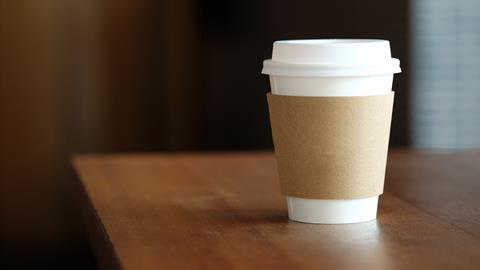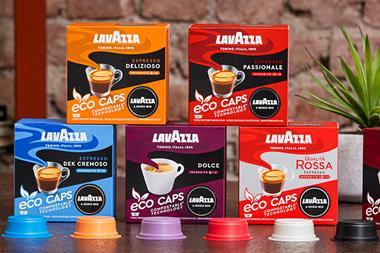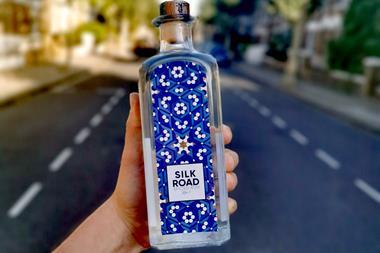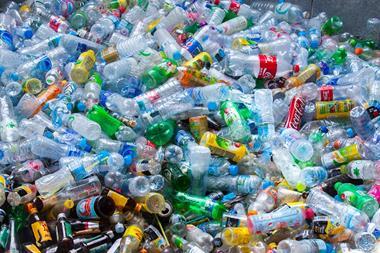How the mighty coffee cup has fallen. It was once a status symbol – something carried around by yuppies who needed a latte, and fast. Now it’s public enemy number one. Ever since Hugh Fearnley-Whittingstall first tackled coffee cups in his 2016 documentary, their environmental cost has frequently made the headlines.
And rightly so. Brits go through an estimated three billion coffee cups a year, and the majority go to landfill – where they take an average of 30 years to decompose. It’s not hard to work out the implications for the planet.
Far harder is working out the solution. One proposal is to charge consumers extra for their coffee cup. That is the solution backed by Zero Waste Scotland, which today announced the results of a study into applying a levy. It found – somewhat unsurprisingly – that consumers are less likely to plump for a disposable option when they’re asked to pay a 10p charge on top of their daily latte. Across the four cafés in the study, the proportion of consumers switching from disposable to reusable cups rose an average of 50%.
The results strengthen calls for a ‘latte levy’. And if it can yield the same amount of change as the charge on single-use plastic bags, it could be a sound solution.
But critics argue it’s not possible to eliminate disposable cups. In which case, making them more environmentally friendly is just as much of a priority. There has been plenty of work in this area. Compostable coffee cups are available through the likes of Vegware, and just last week, Booker announced the rollout of a fully recyclable coffee cup. According to Booker, its rapid decomposition – the cup breaks down in a compostable environment in as little as 90 days – is a first in the market.
Meanwhile, the large chains have steered away from compostable cups, which tend to carry a higher charge than your standard fare. Instead, efforts have gone into in-store recycling. Costa was the first to install recycling points across its chain. Since then many others have followed – today, Pret announced the rollout of its recycling points to over 350 UK shops. Which is fine for those who consume their drinks in store – in which case, they could just as easily have gone for an old-fashioned, non-disposable cup – but trickier for those who don’t.
All this activity leaves one question: which is the right approach? Perhaps the answer is a mix of the above. There is a clear argument for the latte levy. And reusable cups have to be better than any disposable item from an environmental point of view.
But similarly to the plastic bag charge, there will always be people who forget to bring their cup along. In which case, compostable cups are a more palatable second best. The cost of a compostable cup may be tricky for chains to justify at the moment - but that could all change as consumer pressure grows. Who knows, the compostable cup could even become the new status symbol.




















No comments yet